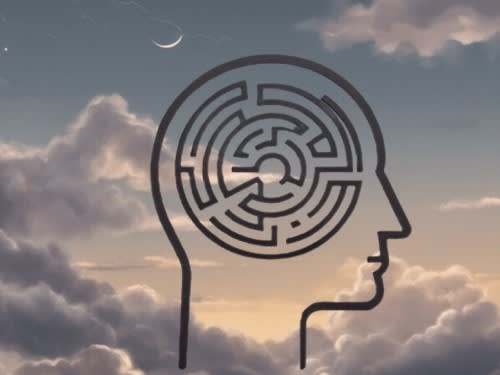Recognising Returning Mental Illness

posted 27th June 2025
Recognising the Signs of a Returning Mental Illness — and Why You Shouldn’t Leave It
Mental illness is not always a one-time event. Many psychological conditions, including depression, anxiety, bipolar disorder, and OCD, can recur — sometimes subtly at first. Recognising the early signs of a returning mental illness is critical to protecting your mental health and preventing further deterioration.
Why Mental Health Relapse Happens
Mental health recovery is rarely a straight line. Periods of remission may be followed by recurrence, particularly during life transitions, times of stress, or after changes to medication or therapy. The DSM-5 (Diagnostic and Statistical Manual of Mental Disorders, Fifth Edition) recognises that many disorders follow a chronic or recurrent course. Left unaddressed, symptoms can reintensify, leading to full relapse.
Early Warning Signs: What to Watch For
Mental health relapse often starts with subtle psychological, emotional, and behavioural shifts. Common signs include:
Loss of interest in activities you used to enjoy
Social withdrawal or increased isolation
Disturbed sleep — either insomnia or oversleeping
Changes in appetite or eating habits
Irritability, restlessness, or frequent emotional outbursts
Difficulty concentrating or making decisions
Negative thought spirals, hopelessness, or rumination
Neglecting responsibilities or personal care
Reemerging compulsive behaviours (e.g. intrusive thoughts, checking, reassurance-seeking)
For those with bipolar disorder, this might look like early hypomanic signs (increased energy, spending, or talking), while for someone with anxiety, it could mean a resurgence of physical tension or avoidance behaviours.
Why You Shouldn’t Ignore These Signs
Many people delay seeking help — hoping it will pass. But like a physical illness, early intervention is key in mental health.
Waiting often leads to:
Longer recovery times
More severe symptoms
Disruption to relationships, work, and functioning
Greater risk of needing emergency care or hospitalisation
Ignoring a returning mental illness can also erode confidence, making future recovery harder. It reinforces the idea that relapse is failure — when, in fact, relapse is often part of the recovery process and should be treated with the same compassion and care as the initial diagnosis.
What to Do If You Notice Symptoms Returning
Talk to your psychologist, GP, or mental health professional. Even if symptoms seem mild, a check-in can prevent them from escalating.
Review your coping strategies — journaling, mindfulness, CBT tools, and support systems may need reinforcing.
Avoid making big life changes when you feel emotionally unstable.
Reach out to your support network — staying connected is protective.
Track your mood and behaviour using an app or diary to catch patterns early.
It's important to remember that mental illness is not binary. You’re not either “sick” or “well.” Think of mental health as a continuum, where stressors, lifestyle, and support influence your position on the scale. The earlier you respond to movement in the wrong direction, the easier it is to correct course.
Experiencing a recurrence doesn’t erase your progress. You are not starting from scratch — you have tools, insight, and experience you didn’t have before. Recognising returning signs is a strength, not a weakness. It means you’re paying attention.
If you sense that your mental health is deteriorating, don’t wait for a crisis. Seeking early support can make the difference between a short setback and a full relapse. At the London Clinic Psychologist, we work with individuals navigating the ups and downs of mental health recovery. Whether you’re noticing early signs or already struggling, we’re here to help.
We are accredited by HCPC and work with all major insurers.



